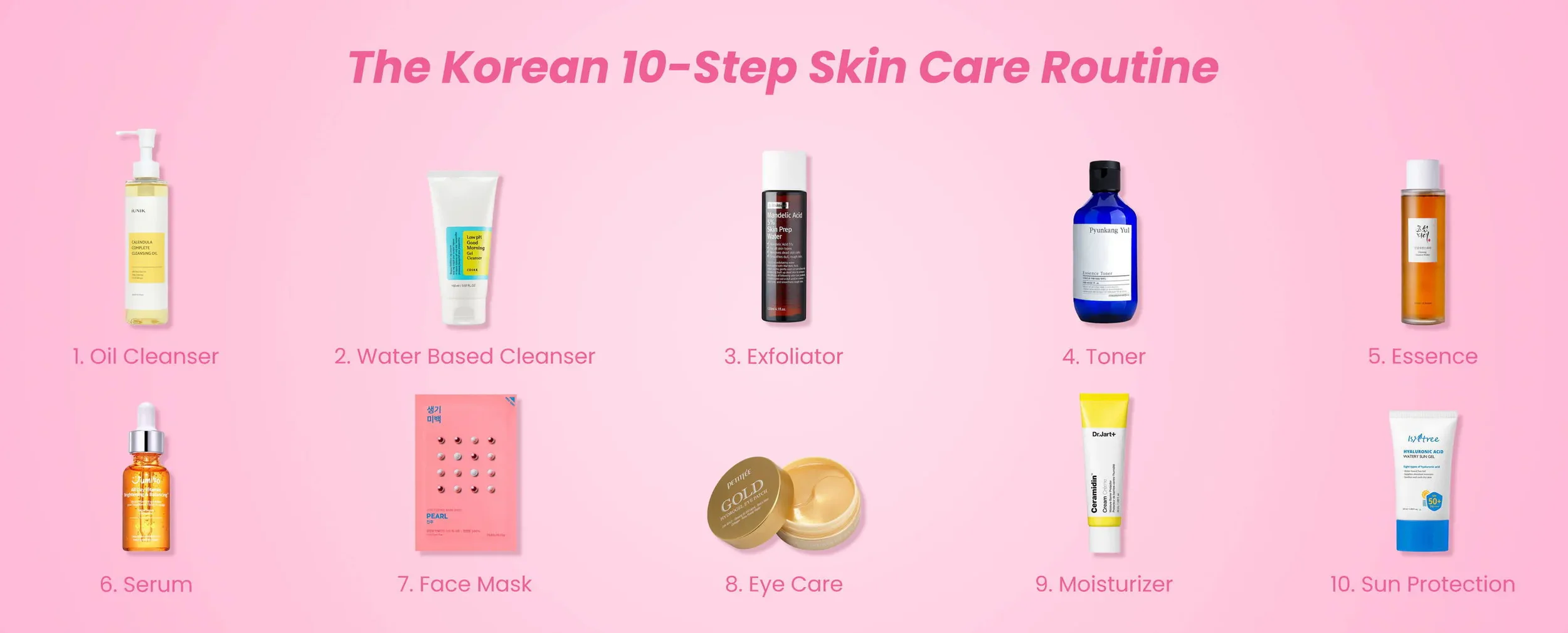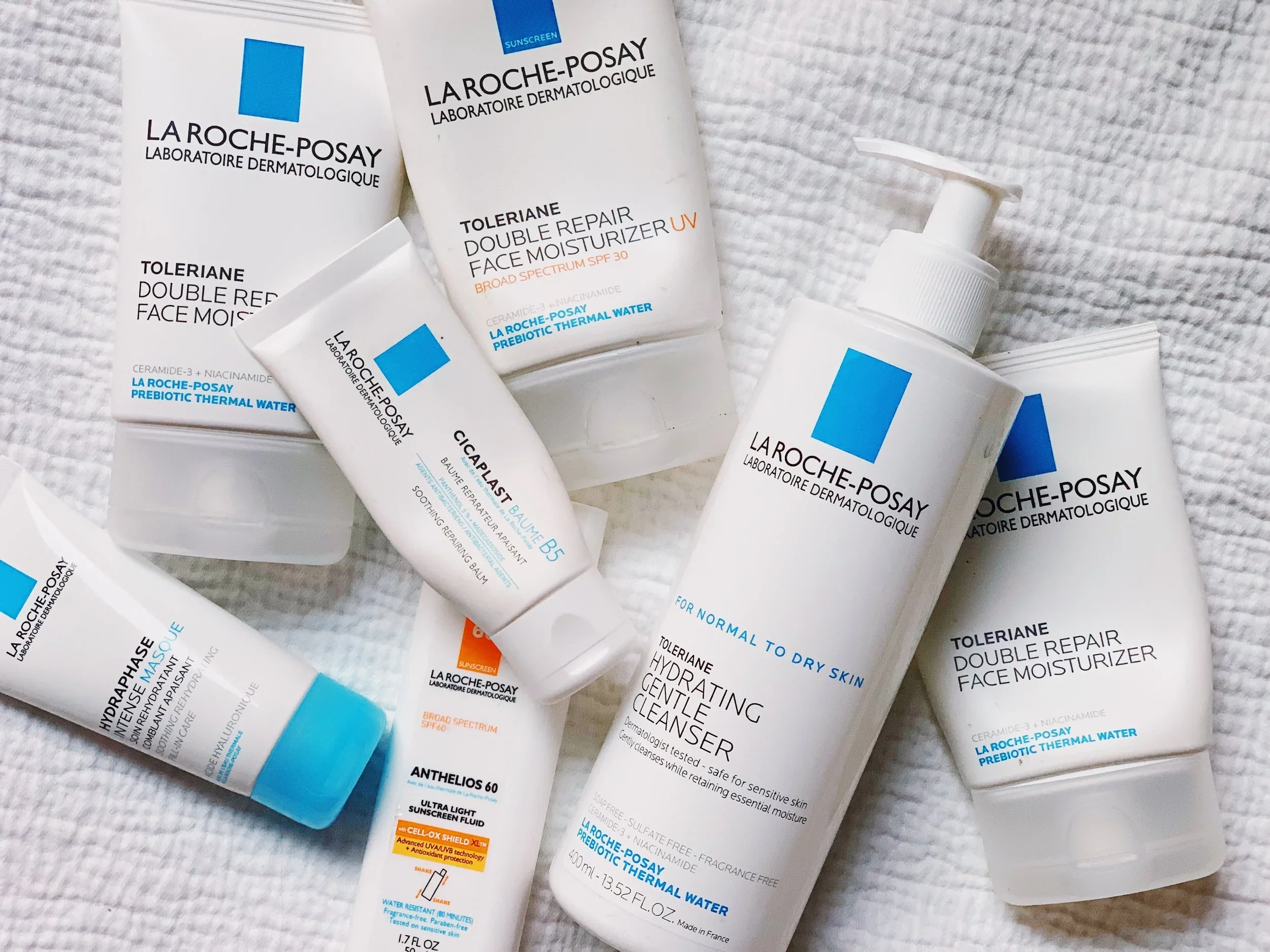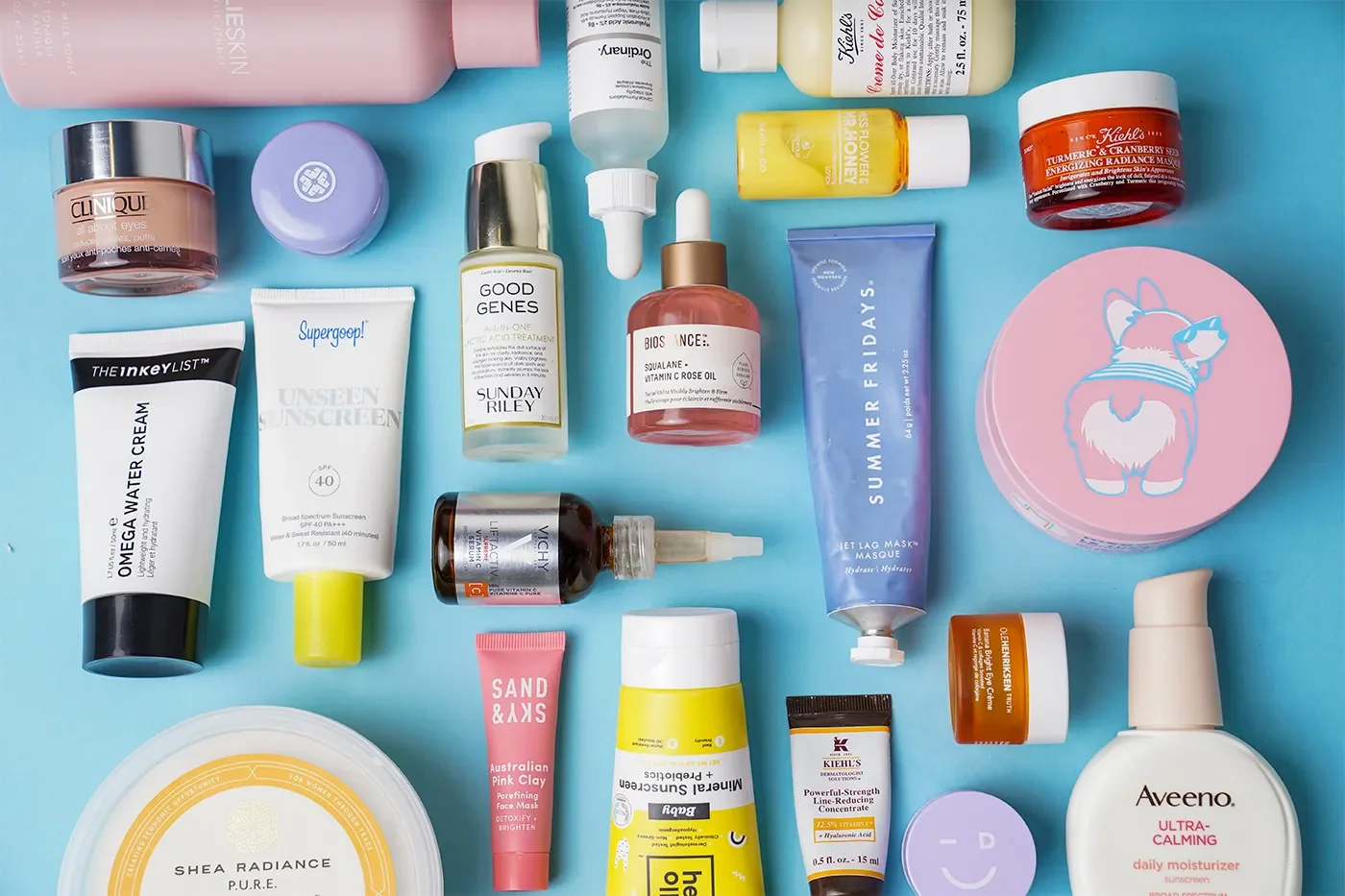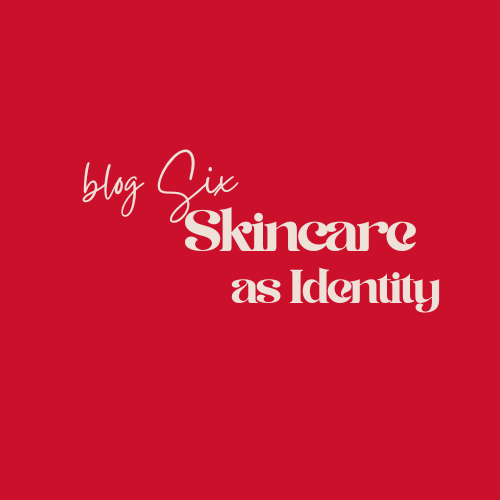Glowing Across Cultures: Skincare as Identity
Across the world, skincare tells stories of culture, wellness, and identity. From Korean glass skin and French pharmacy classics to Indian rituals and American innovation, discover how global beauty traditions define what it truly means to glow. Skincare is more than a beauty routine, it’s a reflection of culture, climate, and identity. The products and rituals people use reveal who they are and what they value. Every culture connects skincare to wellness, spirituality, and self-expression. In many ways, skincare is language, one that communicates care, discipline, and belonging. What we apply to our skin becomes a mirror of our surroundings, humid summers, dry winters, family habits, and even generational beliefs about beauty and self-worthIn Korea, skin represents self-discipline and care, in France, skincare symbolizes natural elegance and balance, in the U.S., skincare shows individuality, science, and innovation, in India and the Middle East, skincare is tied to ritual, family, and tradition.
The meaning of “glow” changes across continents but the desire for self-care is universal.
Skincare as an Identity
Image by Alexandra Oakland via Canva
1. Skincare Reflects Culture, Not Just Beauty
Every culture defines “healthy skin” differently.
What’s radiant in one country might look different in another.
For example, in Japan, for instance, a soft, porcelain complexion has long symbolized grace and serenity, while in Brazil, glowing, sun-warmed skin embodies energy and joy.
Asia: clear, hydrated, smooth skin = purity and youth.
Europe: sun-kissed, natural, effortless skin = vitality.
Middle East & Africa: hydrated, protected, resilient skin = comfort and health.
Climate, geography, and lifestyle shape skincare routines.
Hot, dry climates → oils, hydration, sun protection.
Cold, windy regions → thick creams and barrier repair.
Humid environments → lightweight gels and mists.
Skincare mirrors identity, status, and self-respect.
In many cultures, skincare also acts as a silent social signal. A polished routine may suggest discipline and self-control, while natural, minimal care reflects confidence and ease. From the simplicity of French women’s pharmacy staples to Korea’s elaborate multi-step rituals, each approach tells a cultural story about how beauty should feel, not just look.
Rituals like Moroccan hammams or Korean double cleansing reflect history and values.
Glowing skin represents balance, wellness, and confidence, not perfection.
Skincare routines for every skin type
Image via PSA
2. Asian Skincare: Prevention and Hydration
Asian skincare emphasizes prevention over correction, maintaining youth and hydration before issues arise.
Korean skincare focuses on prevention over correction, protecting skin before damage occurs.
Encourages consistency, hydration, and layering for a dewy “glass skin” glow.
Typical steps:
Cleanser (oil + water-based)
Toner
Essence
Serum
Moisturizer
Sunscreen
Common ingredients:
Rice water – brightening and softening
Green tea – antioxidant protection
Snail mucin – healing and elasticity
Hyaluronic acid – deep hydration
Reflects Korean values of patience, care, and daily discipline.
Represents the belief that self-care builds inner and outer confidence.
“Glass skin” = health, clarity, and self-respect.
Beyond Korea, Japan favors “mochi skin” which is soft, bouncy, and hydrated like rice cakes, while China’s approach often blends traditional medicine with modern science. Ingredients like ginseng, pearl powder, and goji berry extract reveal a harmony between wellness and heritage. Cultural attitudes also shape gender roles in skincare. In Korea and Japan, men’s skincare is normalized and respected, reflecting a broader view that beauty equals self-respect rather than vanity.
Korean 10-Step Skin Care Routine
Image via Korean Skincare
3. European Skincare: Simplicity and Natural Care
French skincare is motto: “Less is more.”
French women trust pharmacy brands over luxury ones.
Famous brands: La Roche-Posay, Avène, Bioderma.
Known for dermatologist-tested, fragrance-free products.
Focuses on cleansing, toning, moisturizing, and SPF.
Minimal makeup, skin first, cosmetics second.
Values science, quality, and consistency.
Skincare as a lifestyle, not a chore.
French culture treats skincare as self-respect, a ritual of balance and moderation. A trip to the pharmacy is as much an act of wellness as yoga or meditation. The goal isn’t to hide flaws, but to nurture what’s already there.
Mediterranean skincare beauty is linked to nature, diet, and sunlight.
Common natural ingredients:
Olive oil – hydration and antioxidant care
Honey – soothing and antibacterial
Herbs like rosemary and chamomile – calming and balancing
Promotes connection between what you eat and what you apply.
Emphasizes sun protection, hydration, and skin nourishment.
Reflects harmony, warmth, and community traditions.
In Italy, Greece, and Spain, skincare often overlaps with culinary wisdom, olive oil doubles as both food and moisturizer. These Mediterranean rituals celebrate holistic wellness: glowing skin as a byproduct of a joyful, balanced life.
La Roche-Posay, one of Europes most popular skin care items
Image via Lily Simon
4. American Skincare: Science and Customization
The Science of Skincare
Combines dermatology, innovation, and marketing.
Driven by results, fast, visible improvements.
Skincare is part of self-identity and empowerment.
Common actives and their purposes:
Retinol – anti-aging and cell renewal
Vitamin C – brightening and collagen support
Glycolic acid – exfoliation and glow
Niacinamide – barrier repair and redness control
SPF – daily protection and prevention
Reflects U.S. values of efficiency and personalization.
Consumers create custom routines, not one-size-fits-all.
“Skinimalism” and “Clean Beauty” are current trends.
American skincare embodies freedom of choice, there’s a product for every personality, price, and goal. From dermatologist-developed serums to indie vegan brands, skincare has become both a scientific experiment and a form of self-expression.
Influence of Social Media
TikTok and Instagram drive product discovery. The U.S. skincare market exceeds $20 billion annually.
As seen on videos from influenecrs like Alix Earle and Skincare by Hyram popularize new brands.
Tutorials, “GRWM” (Get Ready With Me) videos, and product reviews shape consumer habits.
Skincare is now entertainment, education, and community.
Hashtags like #SkincareRoutine on TikTok and #CleanGirlAesthetic also on TikTok trend globally.
Demonstrates how American beauty merges science and storytelling.
This constant online dialogue has blurred the line between consumer and creator. Everyone becomes their own expert, testing, reviewing, and teaching others. Skincare is no longer private, it’s public performance and personal identity intertwined.
Four Top U.S. Ingredients
Image by Alexandra Oakland via Canva
5. Middle Eastern & South Asian Skincare: Tradition and Ritual
Natural Ingredients and Ancient Remedies
Beauty tied to heritage, nature, and spiritual care.
Common traditional ingredients:
Rose water – toning and cooling
Turmeric – glow and healing
Henna – cooling and decorative care
Argan oil – hydration and protection
Coconut oil – nourishment and shine
Rituals such as hammams (steam baths) and abhyanga (oil massage) go beyond cleansing.
Focus on balance between body, mind, and environment.
Homemade masks and oils passed through generations, global Beauty, and shared Habits. Skincare practiced as bonding time among families and friends. Rituals shared during weddings, celebrations, and religious events.
Skincare products displayed
Image via Northeastern Global News
Global Beauty, Shared Habits
No single skincare philosophy is universal, but all are valuable.
Skincare reflects how cultures adapt to environment and technology.
Globalization has blended rituals and ingredients:
Korean essences now used in the U.S.
French micellar water popular in Asia.
Indian turmeric masks trending worldwide.
Diversity is redefining what “beauty” looks like.
The new ideal: authentic, balanced, inclusive.
Shared lessons from around the world:
Take time for yourself.
Treat skin gently and consistently.
Use what works for your climate and lifestyle.
Remember that real beauty reflects care, not comparison.
Skincare unites people across borders, an act of love, confidence, and cultural expression. Skincare is evolving into something more than routine, it’s becoming a universal ritual of care that blends science, culture, and emotion. As traditions mix and technology advances, people are realizing that beauty isn’t about imitation, but inspiration. Global beauty is no longer East versus West, it’s a shared pursuit of wellness, balance, and authenticity. The next chapter of skincare celebrates both innovation and tradition, reminding us that glowing skin starts with a deeper glow from within, one that reflects confidence, connection, and cultural pride.
References
Canadian Cosmetic Cluster. (2024, March 16). Korean beauty trends: Unveiling the secrets to flawless skin. Canadian Cosmetic Cluster. https://www.canadiancosmeticcluster.com/clusterupdates/korean-beauty-trends-unveiling-the-secrets-to-flawless-skin
Harper’s Bazaar. (2025, August 20). How to get glass skin, according to K-beauty experts. https://www.harpersbazaar.com/beauty/skin-care/a65738416/how-to-get-glass-skin/
Who What Wear UK. (2024, April 12). Here’s how to carry out a French skincare routine. https://www.whowhatwear.com/beauty/skin/french-skincare-routine
Pro Marketer. (2024). Exploring the past, present, and future of the Middle Eastern beauty market. https://www.promarketer.ca/post/timeless-beauty-exploring-the-past-present-and-future-of-the-middle-eastern-beauty-market
Mintel. (2025, April 9). Personalisation trends are redefining the beauty and personal care industry. https://www.mintel.com/insights/beauty-and-personal-care/personalisation-trends-are-redefining-the-bpc-industry/
The Times of India. (2025). Ginseng to snail mucin: 5 key Korean facial ingredients required for perfect glass skin. https://timesofindia.indiatimes.com/life-style/beauty/ginseng-to-snail-mucin-5-key-korean-facial-ingredients-required-for-perfect-glass-skin/photostory/123360431.cms
McKinsey & Company. (2025, June 9). State of beauty 2025: Solving a shifting growth puzzle. https://www.mckinsey.com/industries/consumer-packaged-goods/our-insights/state-of-beauty
Image by Alexandra Oakland via Canva







